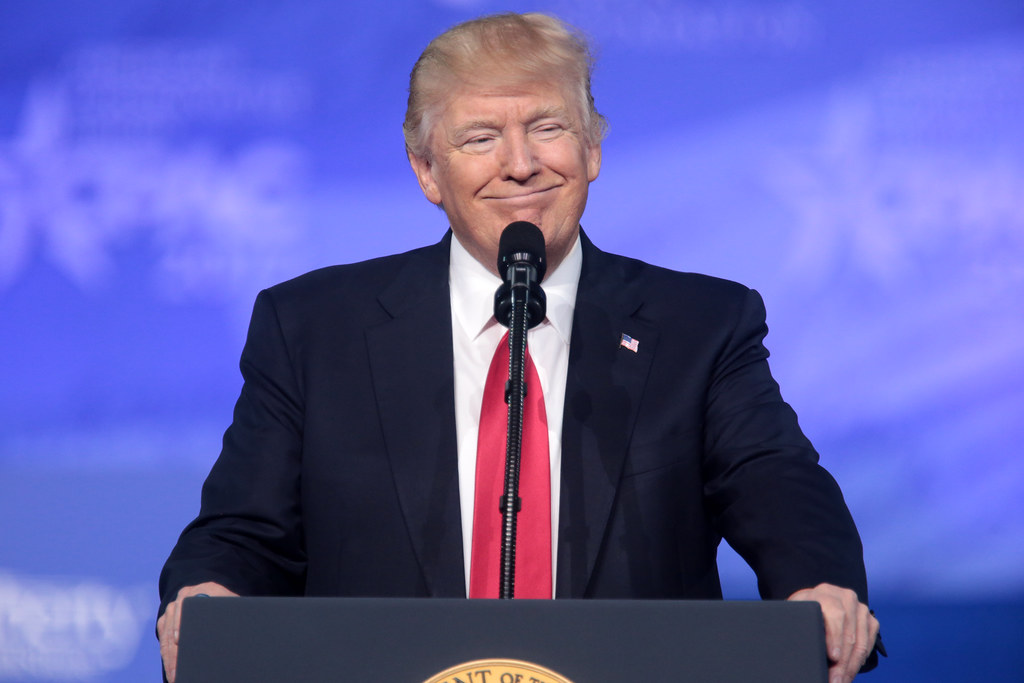
President Donald Trump has announced a significant escalation in the trade war with China, revealing that tariffs on all Chinese imports will rise to a staggering 104% starting Wednesday. The White House’s Press Secretary, Karoline Leavitt, confirmed the increase on Tuesday, just a day before the new tariffs go into effect.
This move comes on top of existing tariffs and is a part of Trump’s “reciprocal” tariff strategy. China had already planned to raise tariffs by 34% on U.S. goods starting Wednesday. However, Trump decided to add an additional 50% tariff following China’s refusal to withdraw its retaliatory measures by the Tuesday deadline.
Impact on U.S. and Global Markets
The announcement sparked immediate market reactions. U.S. stocks, which had been on the rise earlier on Tuesday, began to fall sharply after Leavitt’s briefing. The Dow Jones Industrial Average dropped 320 points, or 0.84%, while the S&P 500 fell 1.57%. The Nasdaq Composite, heavily influenced by tech stocks, saw a 2.15% decrease.
Asian markets were similarly affected, with Japan’s Nikkei 225 and Hong Kong’s Hang Seng both dropping by 3%. South Korea’s Kopsi and Australia’s ASX 200 index also lost around 1%.
In an unexpected move, President Trump also signed an executive order on Tuesday night, tripling tariffs on goods under $800 coming from China. Originally, goods falling under this “de minimus” exemption were supposed to face a 30% tariff by May 2. However, Trump’s latest executive order increased that figure to 90%, which could significantly impact U.S. consumers who purchase items from platforms like Shein, Temu, and AliExpress.
China’s Response and Potential Retaliation
China has already voiced its opposition to the additional tariffs. The Ministry of Commerce called it “a mistake upon a mistake” and vowed to escalate its retaliation. State-run media outlets in China have suggested possible countermeasures, including increasing tariffs on U.S. agricultural products like soybeans, suspending cooperation on fentanyl, and banning U.S. poultry imports. They also suggested further restrictions on American films and investigation into U.S. companies’ intellectual property in China.
Despite the looming risk of continued escalation, White House spokesperson Leavitt reaffirmed that President Trump remains unwavering in his approach, adding that the U.S. is prepared to engage in “tailor-made” negotiations with countries seeking to avoid the new tariffs.
The tariff hikes will not just impact China. The new tariff measures will also apply to dozens of countries and regions, including the European Union, with rates ranging from 11% to 50%. Leavitt noted that Trump is keen to move forward with these measures, although he has shown some willingness to make specific trade deals with countries that seek to negotiate.
Author’s Opinion
President Trump’s aggressive approach to tariffs is undoubtedly shaking up global trade, but the risk of continued retaliation could end up hurting U.S. consumers and businesses more than expected. As China and other nations retaliate, the global supply chain disruption will likely make everyday goods more expensive for Americans. While the president’s approach may play well domestically with his base, the long-term effects on global markets and U.S. industries may not be so favorable.
Featured image credit: Gage Skidmore via Flickr
Follow us for more breaking news on DMR
